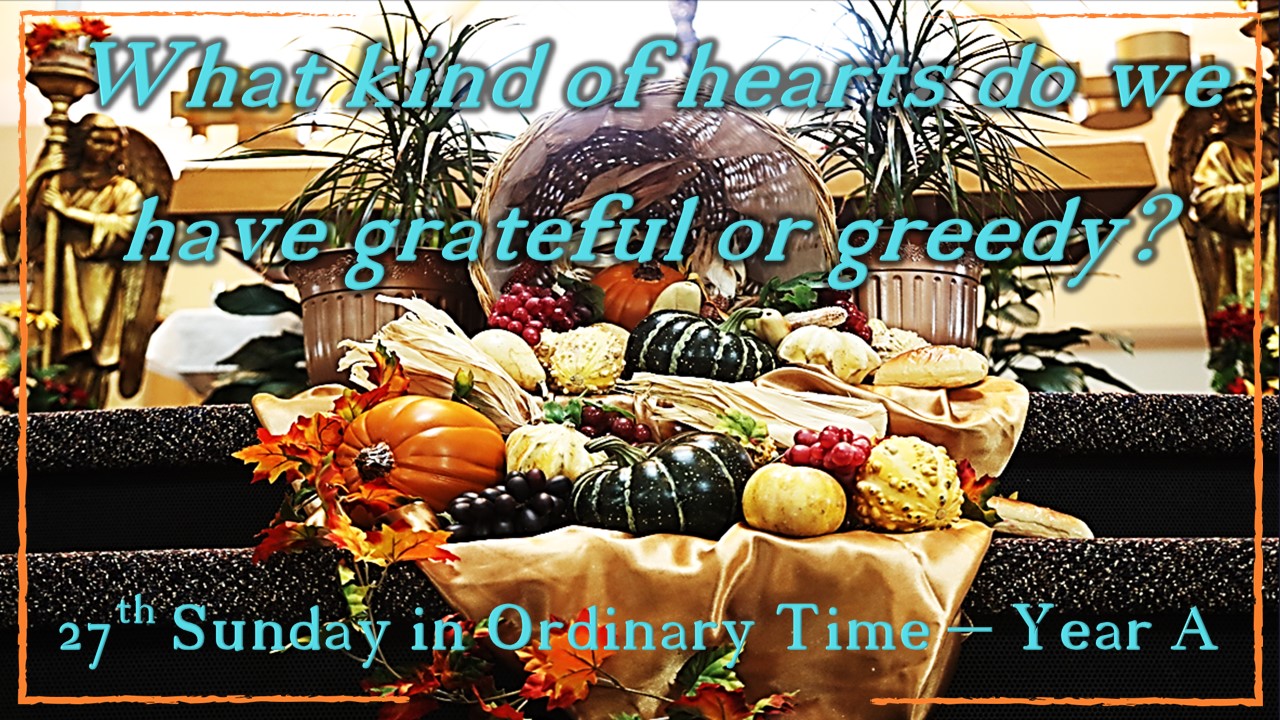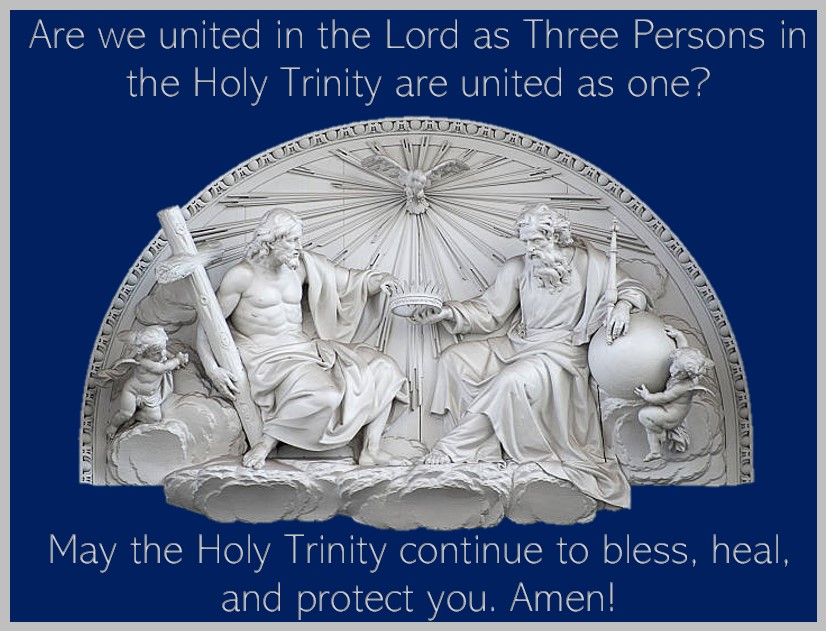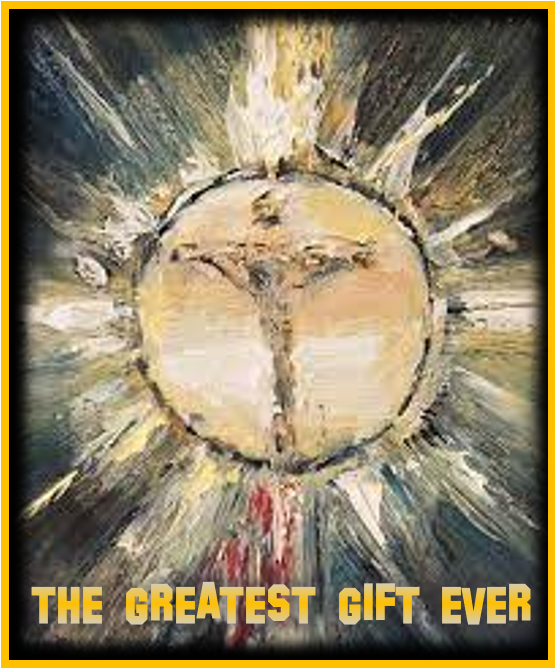
27th Sunday in Ordinary Time – Year A ~ October 8, 2023
Grateful or Greedy Hearts?
Every year we celebrate Thanksgiving Day where the whole family loves to come together to give thanks to the Lord for all his blessings (Please read Psalm 127). This beautiful Psalm does remind us that we must have grateful hearts, he will give us 100-fold and our cup will overflow with his infinite blessings as Psalmist says in Psalm 23. Don’t we all like banquets? Jesus did. It is amazing how many stories we have of Jesus eating with people or talking about eating. And he was sometimes criticized for not being choosy enough about whom he ate with. Banquets were special and he used them as a metaphor for participation in the kingdom of God. For him, the Last Supper was very important, he left so many things with his disciples to continue afterwards. The dining table to him was a classroom where he taught the lessons of life with no compromise. Do we really need to be grateful or is it the other way around? Many times, either having grateful hearts we love to complain and complain about everything and everyone.
Let me share this following story to remind ourselves that when we are grateful, our understanding towards other people is totally different but if not then we complain and complain without any full stop.
There is a Greek legend that says that when man was created, the father of the gods, Zeus, decided to give him two bags. One bag contained the man’s own negative qualities while the other contained everybody else’s faults. Zeus hung these bags on a long pole. But because he made the mistake, man today is what he is today. And do you want to know what that mistake was?
Zeus hung the bag that had other people’s faults on the front end of the pole while the bag that contained man’s own faults was hung further behind. So, man was able to see others defects before he could see his own.
We all love a good meal with our friends and family. Whenever we share a meal with those we love, there is a sense of joy, community and belonging which is experienced by those around the table. Stories are told and new memories are created. The same was true at the time of Jesus. We know from the gospels, that Jesus sat and ate with many people, but did we ever consider including other deserving people in our joyful thanksgiving meals?
Once, as a wife was getting ready to go shopping, the husband called her from his work; “Are you going grocery shopping today?” “I plan to,” she answered.
For a few seconds, her husband sat silent on the other end of the line. “Why do you ask?” she uttered, fearing what he might say. “Sweetheart, there’s a family with a half dozen kids that will not have anything to eat for Thanksgiving. The little one is only five years old.” “So, what are you saying?” she whispered.
“While you’re at the store could you possibly buy something for them?” her husband’s words echoed in her heart. Her head began to spin thinking about the fifty dollars she had reserved for her family’s Thanksgiving dinner. However, in the back of her mind, she counted the hungry guests who would be coming to her house for dinner. She put her head down on the desk, already feeling defeated. There’s no way possible, she thought, but the compassion she heard in her husband’s voice struck a nerve inside her. “Sure,” she replied. “But only if God helps.”
“Thanks, sweetheart,” he whispered. “Just do what you can.” He then hung up the telephone. She finished her work and prayed all the way to the nearest grocery store. She entered the parking lot and noticed a big sign in the grocery store window: Turkeys – 29 cents a pound.
“This is the place, Lord” she whispered. She grabbed her box of coupons, went inside, secured two buggies, and headed to the frozen foods. The turkeys were indeed on sale, but she discovered one big problem. When she read the sign posted on the freezer door her heart sank. “Limit one.”
“But I need two,” she uttered to herself. She decided to find the manager. She explained the problem. He made an exception. After tossing a turkey in each buggy, she began her shopping fury. It was amazing how many buy-one, get-one free items were featured that day. The first item went into one buggy. The free item went in the other. In addition, she had all the right coupons to get exactly what both families needed for a hearty Thanksgiving dinner. She proceeded to the register and held her breath while the cashier rang up her groceries. To her surprise, she had enough money, she was even able to purchase a package of cookies for the five-year-old who had stolen her heart, even though she had never met her.
Later that afternoon, her husband and she made a special delivery to a home filled with children of all ages. She will never forget the smiles on the six kids’ faces, as they made several trips from her car carrying numerous bags of groceries inside. This event reminded her of a story. Even though He only had a few loaves and fishes, Jesus multiplied them and fed five thousand people. And to top it off, there was food left over. She wondered if God was doing the same thing that day.
By far, that was the greatest Thanksgiving Day of her life. Her entire family shared a hearty meal with them. They had plenty to eat and even had enough food left over for the evening meal. After, when she had time to think about what had happened, she imagined a home, not far from where she lived. There was a mother and a father and six children sitting around the kitchen table, laughing, and rejoicing. They enjoyed the same meal that her family had shared together that day. Then she realized that miracles happen when we step out in faith and let God step in. For with us, some things are impossible but with God, all things are possible.
In biblical times when ancient Israelites tried to imagine what the fullness of God’s kingdom would be like, one of their favorite images was a banquet. In the chapter 25, Prophet Isaiah pictures God’s kingdom as a grand banquet with “a feast of rich food and choice wines.” In a society in which such food and drink were in short supply, the image was powerful. The one who supplies this extraordinary meal is “the Lord of hosts,” and it is open to “all peoples.” It takes place on “this mountain,” most likely the Temple Mount in Jerusalem, which itself was an image of God’s dwelling place. At this banquet, God will destroy death, end all suffering, and bring about salvation. At this banquet, the hopes of God’s people will be fulfilled. Psalm 23 (“The Lord is my shepherd”) is most famous for its pastoral imagery of God’s care for us, leading us through the dark and dangerous places in our lives. The second half of the psalm, however, shifts the imagery and portrays God as the host at a lavish banquet.
Once upon a time a Sage was passing through the capital city of the famous king. While he was walking, he noticed a single currency coin on the road. He picked it up. He was satisfied with his simple living, and he had no use for that coin. So, he planned to donate it to someone who needs it. He strolled around the streets throughout the day but didn’t find anyone. Finally, he reached the rest area and spent a night there.
The next morning, he woke up in the morning for his daily activities and saw that a king was going for his invasion of another state with his war ready army. When the king saw the sage standing, he ordered his army to be stopped. He came to the Sage and said, “Oh Great Sage, I am going to war to win another state so that my state can be expanded. Bless me to be victorious”.
After thinking, Sage gave a single currency coin to the king! The king was confused and annoyed with this because what use was a single coin while he was already one of the richest kings! He curiously asked a sage, “what’s the meaning of this one coin?”
A Sage explained, “Oh Great King! I found this coin yesterday while strolling around the streets of your capital city. But I had no use for it. So, I had decided that I will donate it to someone needy. I strolled around till evening in your capital but found no one. Everyone was living a happy life. It seemed that they were satisfied with what they had. So, I found no one to give this coin. But today, the king of this state, still has the desire to gain more and not satisfied with what he already has, I felt you needed this coin.”
This Sunday’s Sacred Scripture Readings give us the same message of grateful or greedy hearts. Holy Father Pope Francis reflecting on the readings says, “Today the prophet Isaiah and the Gospel employ the image of the Lord’s vineyard. The Lord’s vineyard is his “dream”, the plan which he nurtures with all his love, like a farmer who cares for his vineyard. Vines are plants which need much care!
God’s “dream” is his people. He planted it and nurtured it with patient and faithful love, so that it can become a holy people, a people which brings forth abundant fruits of justice.
But in both the ancient prophecy and in Jesus’ parable, God’s dream is thwarted. Isaiah says that the vine which he so loved and nurtured has yielded “wild grapes” God “expected justice but saw bloodshed, righteousness, but only a cry of distress”. In the Gospel, it is the farmers themselves who ruin the Lord’s plan: they fail to do their job but think only of their own interests. Rather than becoming faithful, became greedy. They wanted to have everything and didn’t spare to kill other people. St. Paul says greed is worse than idolatry.
In Jesus’ parable, he is addressing the chief priests and the elders of the people, in other words the “experts”, the managers. To them in a particular way God entrusted his “dream”, his people, for them to nurture, tend and protect from the animals of the field. This is the job of leaders: to nurture the vineyard with freedom, creativity, and hard work. But Jesus tells us that those farmers took over the vineyard. Out of greed and pride they wanted to do with it as they pleased, and they prevent God from realizing his dream for the people he has chosen.
The temptation to greed is ever present. We encounter it also in the great prophecy of Ezekiel on the shepherds. Greed for money and power. And to satisfy this greed, evil pastors lay intolerable burdens on the shoulders of others, which they themselves do not lift a finger to move (Mt 23:4).
We are all sinners and can also be tempted to “take over” the vineyard, because of that greed which is always present in us human beings. God’s dream always clashes with the hypocrisy of some of his servants. We can “thwart” God’s dream if we fail to let ourselves be guided by the Holy Spirit. The Spirit gives us wisdom which surpasses knowledge and enables us to work generously with authentic freedom and humble creativity.
To do a good job of nurturing and tending the vineyard, our hearts and our minds must be kept in Jesus Christ by “the peace of God which passes all understanding” (Phil 4:7). In this way our thoughts and plans will correspond to God’s dream: to form a holy people who are his own and produce the fruits of the kingdom of God (cf. Mt 21:43).
This parable also illustrates the reproaches of the prophets in the story of Israel. It is a history that belongs to us. It is about the Covenant which God wished to establish with mankind and in which he also called us to participate. Like any other love story, this story of the Covenant has its positive moments too, but it is also marked by betrayal and rejection. To make us understand how God the Father responds to the rejection of his love and his proposal of an alliance, the Gospel passage puts a question on the lips of the owner of the vineyard: “When therefore the owner of the vineyard comes, what will he do to those tenants?” This question emphasizes that God’s disappointment at the wicked behavior of mankind is not the last word! The same way we can also see in the story of Adam and Eve, when they disobeyed God and God called them, but they hid themselves because they were naked. This is the great novelty of Christianity: a God who, even though disappointed by our mistakes and our sins, does not fail to keep his Word, does not give up and, most of all, does not seek vengeance! “For he loved the world so much that he gave his only Begotten Son that any who believes in him may have eternal life”.
God does not avenge himself. God loves, he does not avenge himself. He waits for us to forgive us, to embrace us. Through the “rejected stones” — and Christ is the first stone that the builders rejected — through situations of weakness and sin, God continues to circulate “the new wine” of his vineyard, namely mercy. This is the new wine of the Lord’s vineyard: mercy. There is only one obstacle to the tenacious and tender will of God: our arrogance and our conceit which, at times also becomes violence! Faced with these attitudes where no fruit is produced, the Word of God retains all its power to reprimand and reproach: “Therefore I tell you; the kingdom of God will be taken away from you and given to a nation producing the fruits of it”.
Everyone needs riches to live on, but it shouldn’t encourage us to become greedy and that greediness takes away everything from us. God wants us to live the lives of contentment and be happy that we have.
This week as we celebrate Thanksgiving Day, there is much to be grateful for, God’s blessings: our faith, family, friends, work and for our Mother Church. During this month we are given the great personality of the Blessed Virgin Mary to walk with us and we can learn from her how to be grateful:
“My soul glorifies the Lord and my spirit rejoices in God my Savior,
for he has been mindful of the humble state of his servant.
From now on all generations will call me blessed,
for the Mighty One has done great things for me – holy is his name.
His mercy extends to those who fear him, from generation to generation.
He has performed mighty deeds with his arm;
he has scattered those who are proud in their inmost thoughts.
He has brought down rulers from their thrones but has lifted up the humble.
He has filled the hungry with good things but has sent the rich away empty.
He has helped his servant Israel, remembering to be merciful to Abraham and his descendants forever, just as he promised our ancestors.”
It is easy to complain but when we trust in Lord then “I can do all things in him who strengthens me.” Christian life combines self-reliance, reliance on God and reliance on others.
There once was a monastery that was very strict. Following a vow of silence, no one was allowed to speak at all. But there was one exception to this rule. Every ten years, the monks were permitted to speak just two words. After spending his first ten years at the monastery, one monk went to the head monk. “It has been ten years,” said the head monk. “What are the two words you would like to speak?”
“Bed Hard” said the monk.
“I see, you need ten years more to discipline yourself” replied the head monk.
Ten years later, the monk returned to the head monk’s office. “It has been ten more years,” said the head monk. “What do you think about our food here?”
“Food Stinks” said the monk.
“I see, I think you need to spend more time here to learn to be consistent in your life” replied the head monk.
Yet another ten years passed, and the monk once again met with the head monk who asked, “What do you think about the monastery after 30 years of your stay?”
“I Quit!” said the monk.
“Well, I can see why,” replied the head monk. “All you have learned during this time is to complain.”
What kind of hearts do we have grateful or greedy?
Other Sermons In This Series

3rd Sunday of Advent – Year A ~ December 11, 2022
December 09, 2022

Solemnity of Holy Trinity Year A ~ June 4, 2023
June 02, 2023


